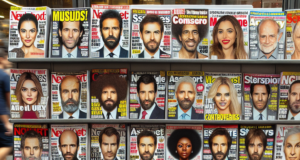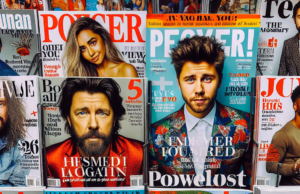Unveiling Controversy: Shocking Leaked Photos Spark Outrage and Debate

In an age where digital privacy is increasingly compromised, a recent incident involving a series of leaked photographs has ignited widespread outrage and debate across various platforms. The images, which purportedly depict private moments of public figures, have not only raised questions about the ethics of sharing such content but have also highlighted the role of social media in amplifying public reactions. As society grapples with the implications of this controversy, it is essential to explore the background, impact, and potential solutions to navigate the complexities of the digital landscape.
Understanding the Context: The Background Behind the Leaked Photos Controversy
The controversy surrounding the leaked photos can be traced back to a growing trend of unauthorized sharing of private images, often referred to as “revenge porn” or “celebrity leaks.” In this particular case, the leaked images feature several prominent figures from the entertainment and political spheres, raising concerns about privacy violations and the motivations behind such breaches. The incident has sparked discussions about the culture of voyeurism that permeates social media, where the lines between public and private life are increasingly blurred. As individuals become more connected through digital platforms, the potential for misuse of personal content has escalated, prompting a reevaluation of societal norms regarding consent and privacy.
The Impact of Social Media: How Online Platforms Amplify Outrage and Debate
Social media has played a pivotal role in the dissemination of the leaked photos, with platforms like Twitter, Instagram, and TikTok serving as catalysts for outrage and debate. The rapid spread of the images has led to a viral response, with users expressing their shock, anger, and support for the affected individuals. Hashtags related to the controversy have trended globally, illustrating the power of social media to mobilize public sentiment. However, this amplification also raises concerns about the potential for misinformation and the challenge of moderating content that violates privacy. The immediacy of social media can turn a personal crisis into a public spectacle, complicating the discourse surrounding the ethical implications of sharing such content.
Public Reactions: Analyzing the Diverse Responses to the Leaked Images
The public’s reaction to the leaked photos has been multifaceted, reflecting a spectrum of opinions and emotions. Some individuals have condemned the act of leaking the images, emphasizing the importance of consent and the right to privacy. Others, however, have engaged in sensationalism, sharing the images and contributing to the very culture of exploitation that many are criticizing. Additionally, some voices within the discourse have called for accountability, urging social media platforms to take a more proactive stance in preventing the spread of non-consensual content. This divergence in public response underscores the complexities of navigating personal boundaries in a digital world where the consequences of sharing can be far-reaching.
Ethical Considerations: The Moral Implications of Sharing Leaked Content
The ethical implications of sharing leaked content are profound and warrant careful consideration. At the core of the debate lies the principle of consent; individuals depicted in the leaked images did not authorize their distribution, raising questions about the morality of viewing or sharing such content. The act of sharing these images can be seen as an endorsement of a culture that prioritizes sensationalism over respect for personal privacy. Furthermore, the psychological impact on the individuals involved cannot be overlooked, as the violation of their privacy can lead to emotional distress and lasting harm. As society grapples with these ethical dilemmas, it becomes increasingly important to foster a culture of empathy and respect for personal boundaries in the digital realm.
Legal Ramifications: Exploring the Consequences of Unauthorized Photo Releases
The legal landscape surrounding unauthorized photo releases is complex and varies significantly by jurisdiction. In many regions, laws regarding privacy and consent are still evolving, leaving gaps that can be exploited by those seeking to share leaked content. Victims of such breaches often face significant challenges in seeking legal recourse, as the burden of proof can be substantial. Some jurisdictions have enacted specific laws targeting non-consensual pornography, but enforcement remains inconsistent. As the digital age continues to advance, there is a pressing need for comprehensive legal frameworks that address the nuances of privacy violations and provide clear avenues for victims to seek justice.
Moving Forward: Strategies for Addressing Controversy in the Digital Age
As society navigates the fallout from the leaked photos controversy, it is essential to develop strategies that promote responsible digital citizenship. Education plays a crucial role in fostering awareness about the importance of consent and the potential consequences of sharing private content. Social media platforms must also take a more active role in implementing robust policies to prevent the dissemination of non-consensual images and protect users’ privacy. Additionally, fostering open dialogues about the ethical implications of sharing content can help cultivate a culture of respect and accountability. By prioritizing these strategies, society can work towards mitigating the negative impacts of digital controversies and promoting a safer online environment for all.
The leaked photos controversy serves as a stark reminder of the challenges posed by the intersection of privacy, consent, and digital communication. As public discourse continues to evolve, it is imperative for individuals, platforms, and lawmakers to engage in meaningful conversations about the ethical and legal implications of sharing personal content. By fostering a culture of respect and accountability, society can better navigate the complexities of the digital age and protect the rights and dignity of all individuals.













